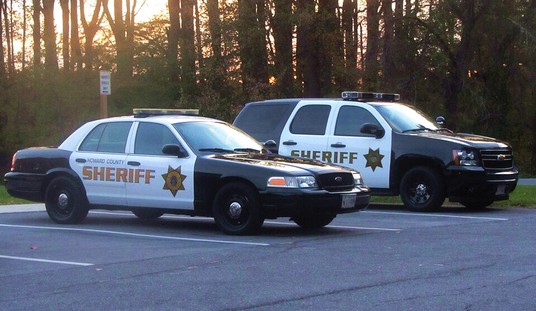I've written before about my amazingly well-read father and how, when I was about 14, he pushed me to read Aristotle's "Organon," telling me that when I'd finished it, we'd talk about it. We did, and it was an early example of the many and varied, wide-ranging discussions I had with my Dad, on topics ranging from the American Revolution to modern cosmology. Dad was a voracious reader, and when he wasn't engaged in the many chores required by his rural home, you almost always found him with a book in his hand.
He passed that along. I read a lot, too. Most writers, in my experience, are also readers. But what one reads makes a big difference, too. Reading comic books is still reading, after all, but one won't get much out of it other than, maybe, a few laughs.
Any society, to be functional, should be literate and educated. That means reading. By the time a young person is 25, they should have read half the great books they will read in their lives. Here are some suggestions. Note that this is far from a complete list; a complete list would require a book unto itself.
Aristotle: The Organon. Aristotle set forth the very fundamental rules of logic, including his famous laws of thought: The law of identity, the law of non-contradiction, and the law of the excluded middle. This old white guy from Greece didn't invent these rules; one can't invent logic, but one can identify it, and put forth those rules of logic and how they are used in the search for facts, for truth.
Thomas Sowell: Basic Economics. This is, beyond compare, the best layman's guide to free-market economics. Dr. Sowell is brilliant, and not only that, he's the quintessential American success story: Raised in poverty, in the Jim Crow South, through his own determination, he drove himself to the pinnacle of American academia. Not only that, he's a staunch supporter of capitalism, of free and open trade between free people.
Ayn Rand: Capitalism, the Unknown Ideal. Opinions of Rand's fiction work vary wildly, although her primary work, "Atlas Shrugged," is enormously influential. But I find her non-fiction work more interesting, particularly in her advocacy for full, open laissez-faire capitalism - liberty. One of her key points is something I've repeated for years, namely that the only legitimate purpose of government is to protect the liberty and property of the citizens.
The United States Constitution and the Federalist and Anti-Federalist Papers. The Constitution describes how our republic works. The Federalist and Anti-Federalist Papers are large parts of the "why" our republic works. They contain the arguments, pro and con, for various aspects of the Constitution, and are invaluable in understanding why and how things work in these United States.
Read More: The Still Relevant, Still Shrewd Words of Niccolò Machiavelli
'Nation's Report Card' on American Students Is in—and Hoo Boy, Is It Bad
Sir Winston Churchill: A History of the English-Speaking Peoples. From the Roman occupation of Britain through the end of the 19th century, Sir Winston's most notable work of a long and remarkable life remains one of the most astute works on the history, not just of England and, later, Great Britain and its empire, but of the Anglosphere as a whole - even we breakaways. And Sir Winston, we must remember, was one of ours as well; his mother was an American.
Marcus Tullius Cicero: The Philippics. Think politics is nasty now? Read one of the Roman Republic's greatest orators talking to the Roman Senate about his colleague Mark Antony. Cicero really, really, really hated Mark Antony - and it was mutual. One of the most eloquent speakers in human history spent hours waxing rhapsodically over what a drunken, crooked scoundrel Mark Antony was - and in return, Antony had Cicero killed and his hands and head nailed to the Senate Rostrum. Politics is still a dirty business today, but let's hope to avoid a return to those days. But mixed in with his attacks on Antony, Cicero also reminds us of his encyclopedic knowledge of the history of Rome, and that alone makes this essential reading. Why? Because in the history of Western civilization, all roads still lead to Rome. Without Rome, there would be no Western civilization.
Which brings me to:
The Bible - and religious texts in general. I'm not a religious person, as most of you know. But the Bible is a book of vast significance in our Western culture. It's a book that defines and shapes the lives of billions, and understanding it is a key to understanding our way of life. I've read at least three different versions. Even so, reading other religious texts can be interesting, too. I've read the Qur'an, I've read translations of the Hindu Vedas and Norse, Teutonic, Greek, and Roman mythologies. As for works on comparative religions, the best remains Sir James George Frazer's "The Golden Bough," which was originally published in 1890.
There can be no substitute for reading. Modern society, modern life is impossible without it. I remember vividly my first visit to Japan, a country I still love; we were staying and working in a small city in Shiga Prefecture, and while in Tokyo, Kyoto and Osaka most signs and advertisements are annotated in English, not so in the hinterlands; I got a great lesson on what it's like to be functionally illiterate in a modern society. Not speaking the language didn't help, either.
Young people in particular should be encouraged to read, especially in their formative years. This list is a good start - but it's only a start.














